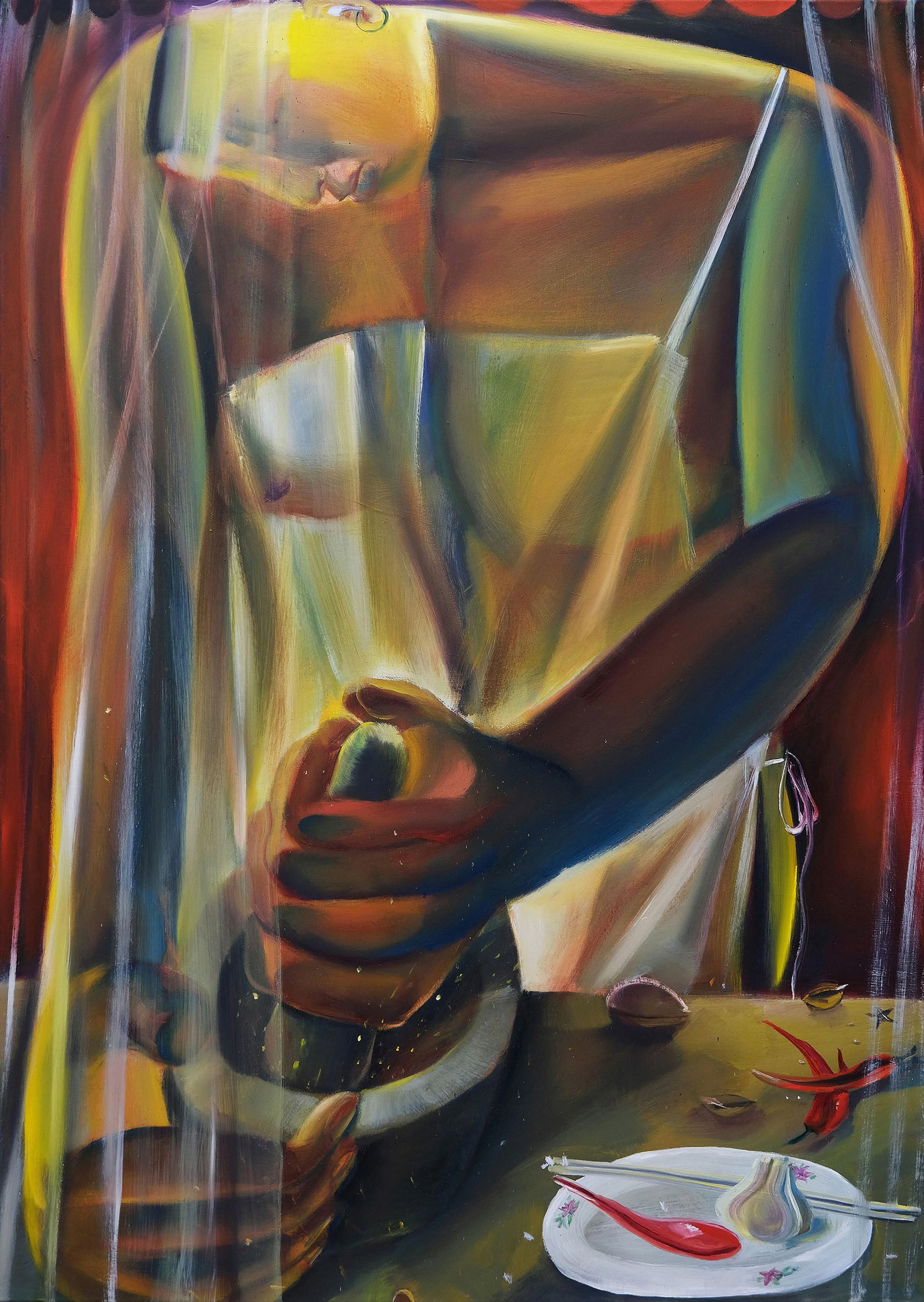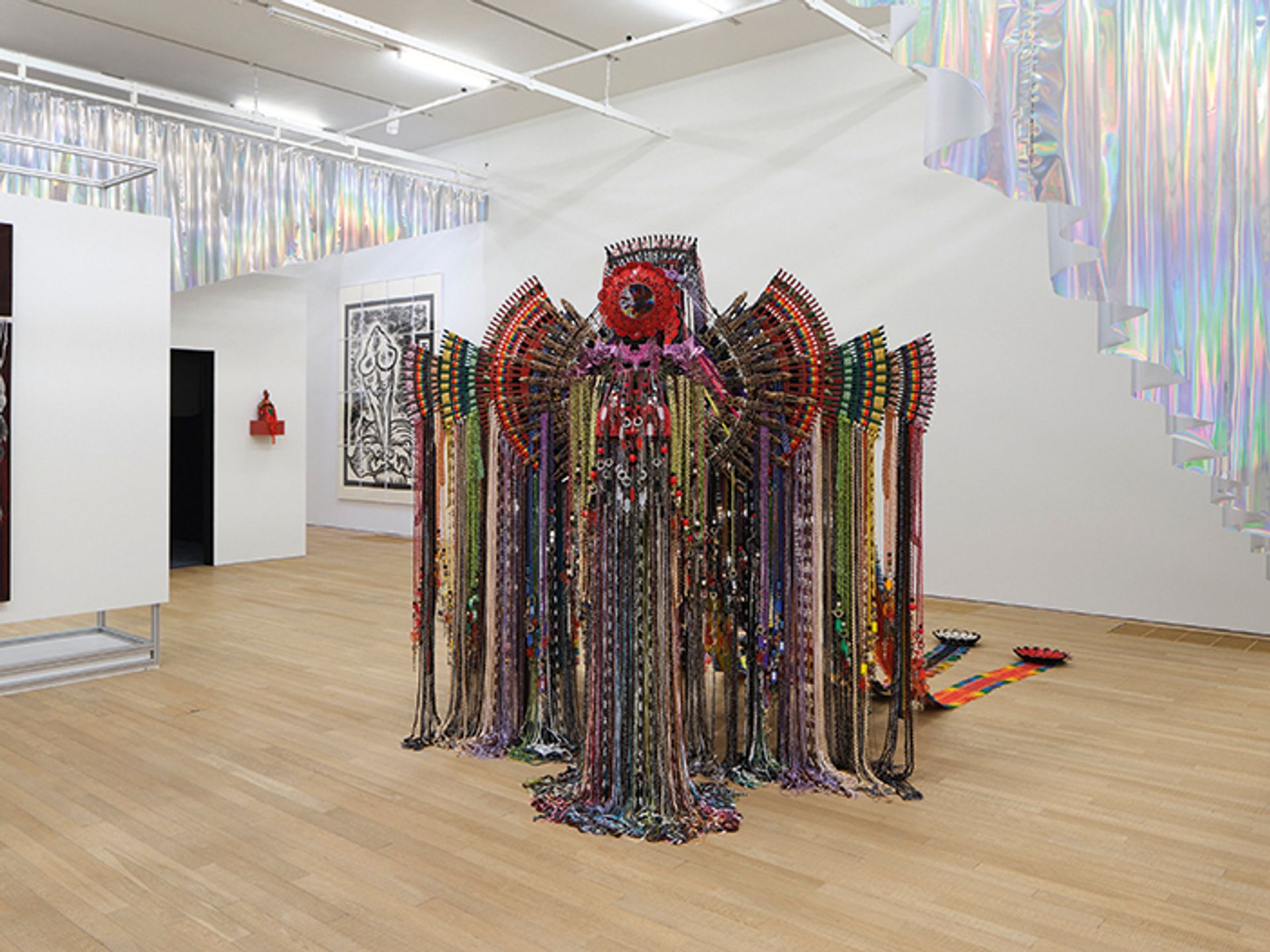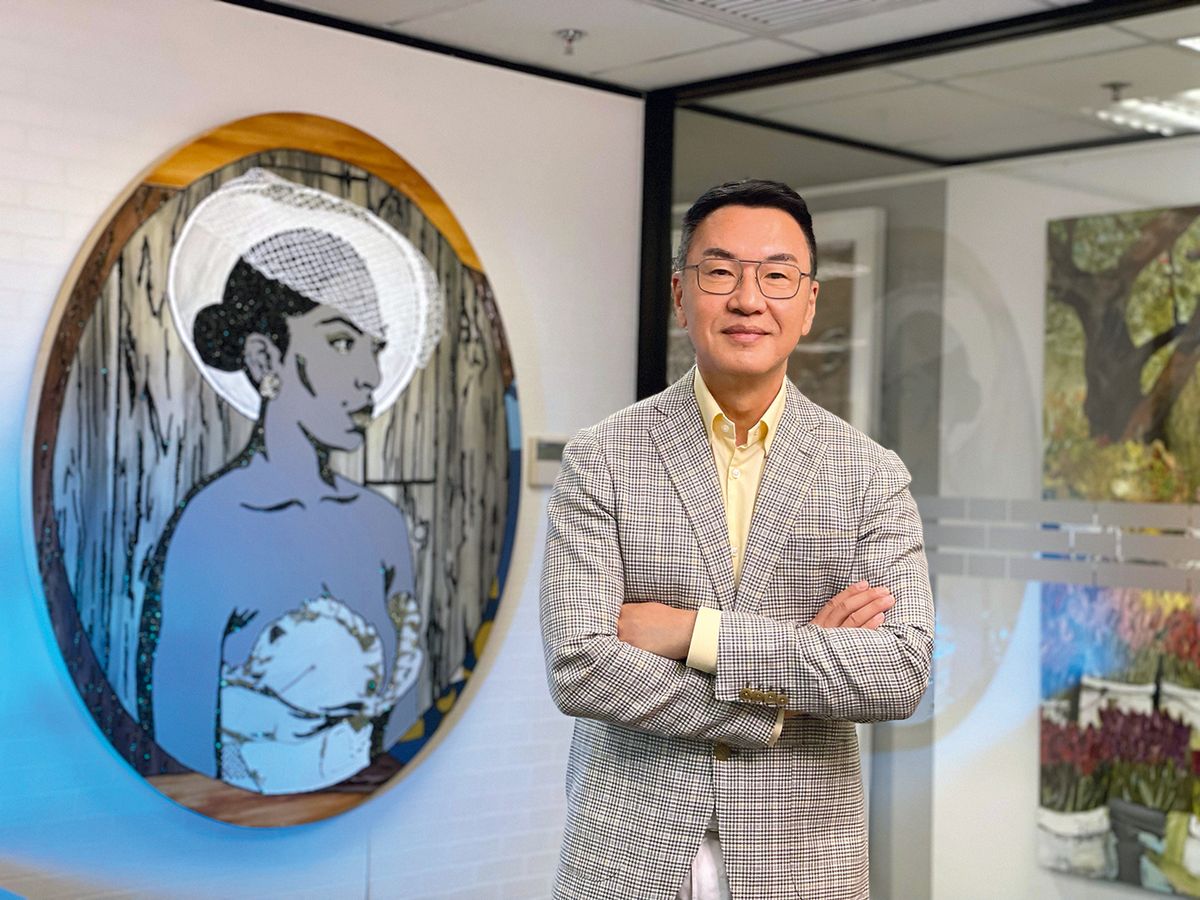Over a collecting journey spanning more than 35 years, Hong Kong-born Patrick Sun has established himself as one of the leading patrons and promoters of queer art in Asia.
Through his Sunpride Foundation, established in Hong Kong in 2014, Sun has staged groundbreaking group shows of works from his collection at museums across Asia. The initial show, at Taiwan’s Museum of Contemporary Art in 2017, claimed to be the first LGBTQ+-themed exhibition to be held at any Asian museum. Subsequent iterations of the exhibition were presented at the Bangkok Art and Culture Centre in 2019 and at Tai Kwun in Hong Kong in 2022-23. Sun’s collection includes works by Bhupen Khakhar, David Medalla, Sin Wai Kin and Samson Young, among others. Alongside his membership of acquisitions and patrons’ committees for museums including M+, the Solomon R. Guggenheim Museum and the Tate, Sun is an active voice in campaigning for LGBTQ+ equal rights in Hong Kong and Taiwan.

Alvin Ong’s Dumpling (2023) Courtesy Sunpride Foundation
The Art Newspaper: What first turned you on to art?
Patrick Sun: Property. I am a real-estate developer and my first project was in an area famous for selling antiques and curios. I tried to buy property from my neighbours but instead ended up buying paintings from them.
What was the first work that you ever bought?
An old scroll showing two boys hiding in a garden eating watermelon. In retrospect, it portends my subsequent collection focusing on LGBTQ+ art.
What is the most recent work you’ve bought?
Alvin Ong’s Dumpling (2023), presented at a group exhibition at Yavuz Gallery in Singapore, which celebrated the repeal of a colonial law in the city-state that criminalised sex between men.
How quickly do you decide to buy a work of art?
Very quickly. My foundation has a small team that can make fast decisions. We also collect for exhibition purposes so personal preferences take a lesser role in those decisions.

Anne Samat’s Conundrum Ka Sorga/To Heaven (2019) from the Tai Kwun exhibition South Ho
Do you have a favourite work of art in your collection?
A work by Robert Rauschenberg made during his seminal trip to China [in 1982]. It portrays a split peach—a symbol of queer love in China—and the Chinese character for “truth”.
What do you regret not buying when you had the chance?
[Chinese photographer] Ren Hang’s works because, not long after we met, he committed suicide [in 2017] due to chronic depression. I use this experience to remind me of how important it is to preserve the legacy of the LGBTQ+ community. Queer people who do not have family or children, or sometimes with parents who would rather hide their children’s sexuality, may soon be forgotten if their estates are not properly cared for.
If you could have any work from any museum in the world, what would it be?
Francis Bacon’s Triptych, May–June 1973 (1973), made in memory of his lover, George Dyer, who committed suicide.
What are you looking out for at Art Basel in Hong Kong this year?
The Encounters section, which shows large-scale works more suitable for museum collections. This is a great opportunity for me to see works that are not often shown in galleries or smaller art fairs.
What tips would you give to someone visiting Hong Kong for the first time?
Visit a local neighbourhood, eat some local food and experience how most people in the city live. The essence of Hong Kong lies in its diverse culture of East meets West, old meets new. One needs to venture outside of the glitzy neighbourhoods to see what the city has to offer.
Where do you like to eat and drink in Hong Kong?
WING for heavenly Chinese food with a touch of French influence. Yat Lok: one needs to queue and eat in a crowded space, but the roast goose is simply the best in Hong Kong. For drinks, I like Argo [in the Four Seasons] and Carlyle & Co [a private members’ club]. Both have spectacular views of Victoria Harbour and innovative cocktails.
What’s your least favourite thing about art fairs?
Food. Even gourmet restaurants seem to fumble when it comes to art fairs, and one hardly has time to eat anyway.


